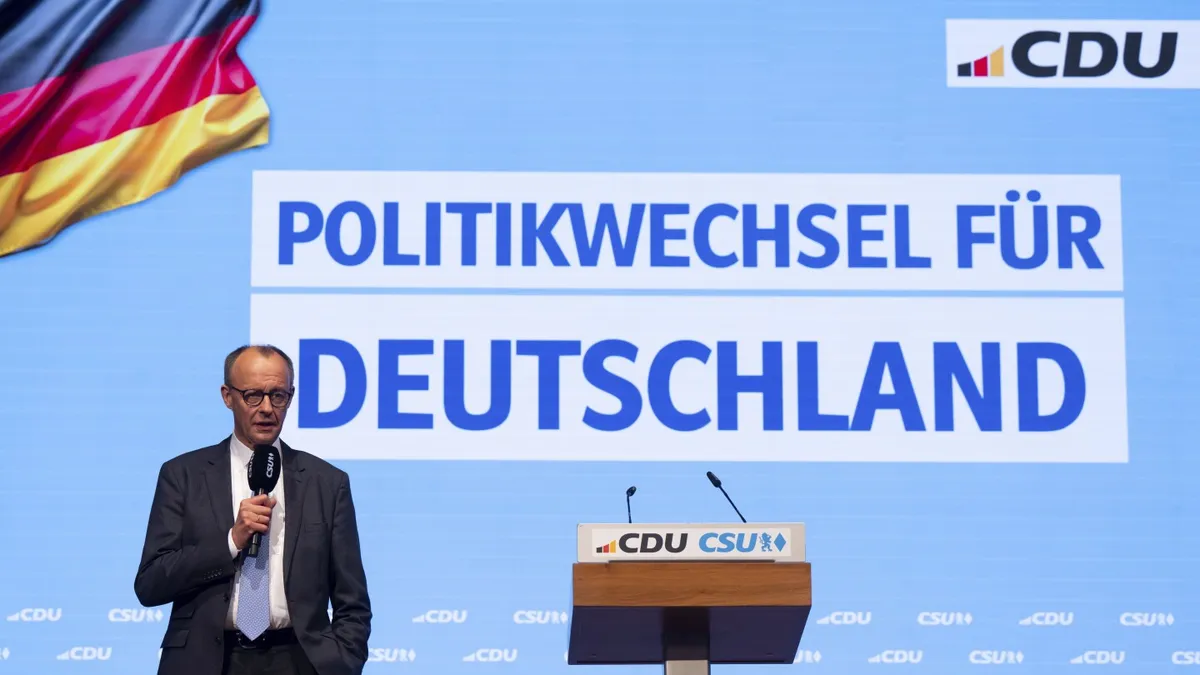
BERLIN (AP) — As Germany's election day approaches, the main contenders made their final appeals to voters on Saturday. Opposition leader and front-runner Friedrich Merz has promised to revive the stagnant economy and defend Europe's interests against a confrontational U.S. administration.
Meanwhile, Chancellor Olaf Scholz remains hopeful for an improbable last-minute comeback, despite the odds.
The election, set for Sunday, focuses heavily on the state of Europe’s biggest economy and the urgent calls to curb migration. There is also growing uncertainty about the future of Ukraine and the strength of Europe’s alliance with the United States.
Polls have consistently shown the center-right opposition, led by Merz’s Union bloc, in the lead. This puts them ahead of the far-right, anti-immigration Alternative for Germany (AfD), which is poised to achieve the strongest result for a far-right party since World War II. However, no other party is willing to form a government with AfD.
Chancellor Scholz’s center-left Social Democrats have struggled to recover from a significant poll deficit after the chancellor’s three-party coalition collapsed in November, following prolonged disagreements on how to revitalize the economy. This collapse led to the election being held seven months ahead of schedule.
At a closing rally in a Munich beer hall, Merz declared that “three years in opposition are enough.”
Germany has traditionally been a leader of the 27-nation EU and is the bloc’s most populous member. Merz emphasized that under his leadership, “Germany will have a strong voice in the European Union again.”
“Europe must be a player and not ask to maybe get a seat at a side table,” Merz asserted. “We must sit at the main table and safeguard our interests against Russia, China, and, if necessary, the United States.”
Merz underscored the need for a tougher stance on migration, which has created friction in recent weeks. Last month, he introduced a nonbinding motion to parliament calling for more migrants to be turned back at Germany’s borders. This motion was approved with support from AfD, a first in postwar Germany that led to accusations of breaking a taboo, which Merz rejects.
“We will under no circumstances discuss any talks, never mind negotiations or participation in government, with AfD,” Merz stated.
At an event in Potsdam, Scholz cast doubt on Merz’s reliability, portraying his party as the strongest defense against AfD playing any role. “Anyone who wants to be sure this doesn’t happen must ensure that there are strong Social Democrats who can provide the next chancellor,” Scholz said.
Scholz remains optimistic, telling attendees that he was “convinced that, this time, many people will only make their decision at the polling station.” He added, “I don’t believe in miracles, but in an election victory,” according to the German news agency dpa.
If Merz wins, it remains uncertain whether he will form a two-party coalition or require a third partner, which would be a more complex scenario. “If we govern, we need few partners and not an endless number of them,” remarked senior conservative ally Markus Söder in Munich.